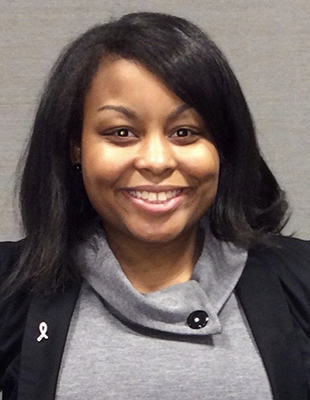AccessComputing Profile: Kiara Benson

Hi my name is Kiara Benson from Memphis, Tennessee. I attend Tuskegee University majoring in Electrical Engineering with dyslexia and attention deficit hyperactivity disorder (ADHD). In the third grade my parents bought me my first computer, and my dream to be an engineer was born. Every time someone asked me what I wanted to be when I grew up, I would always say an engineer just like Katherine Johnson. So many people would tell me engineering is hard and not many minority women are in engineering. I never let the negative words of others stop me from wanting to achieve my goal of becoming an electrical engineer. In elementary school, I struggled in my math classes. My parents bought me math computer games and hired me a tutor to help me succeed. Because my parents invested in resources to help me, I worked even harder in those subjects.
In college, I struggled in some of my courses, not because I was not smart enough, but because I couldn’t grasp the way the professor taught the subject. I would stay up all night studying, spend extra time at tutoring sessions, and visit professor and TA office hours. One of my computer science professors noticed that I understood the material, but that I couldn’t test well. He suggested that I may learn differently; this led me to get tested, where I found out that I had a learning disability. I also learned that it’s normal for many people to find out they have a learning disability when they are in college or later in life. I transferred to Tuskegee University, which is a historical black college and where the student to professor ratio was much smaller. Tuskegee has some of the best faculty and staff. Many of my professors worked extra hours to help me and were patient. Tuskegee made me realize that black women like me can get a degree in engineering. I still cannot believe this is my last semester in college. I have completed multiple internships and research while at Tuskegee University. AccessComputing has granted me many opportunities and surrounded me with great people, creating one of the first environments where I don’t feel ashamed of my learning disability. AccessComputing also provided me with a scholarship to attend the Tapia Conference. It was the first time in my life I felt like I belong in engineering as a minority and engineering student with a learning disability. I went to workshops and heard professional scholars speak on their disabilities, and it motivated me to continue to strive to greatness. I would like everyone to know who is reading this that anyone can be an engineer. Don’t let the struggles, self-doubt, and naysayers stop you from achieving. I wouldn’t have made it this far without my supportive parents, family, mentors, friends, tutors, and the illustrious Tuskegee University. My journey to becoming an electrical engineer has been an uphill battle, but I am continuing to succeed.